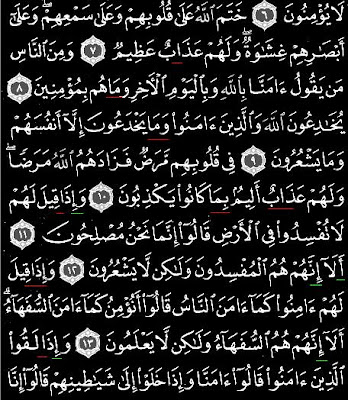

Sentence (Jumlatun) : Group of words which collectively make a complete sense.
Phrase (Shibu Jumlati) : Group of words which doesnot make a complete sense.
In Arabic there are two types of Sentences:
1. The Nominal Sentence (Al-Jumlatu Ismiatu)
2. The Verbal Sentence (Al-Jumlatu Failu)
Lets Start with "AL-JUMLATU-ISMIATU" (THE NOMINAL SENTENCE):
*It consist of two parts
1. Mubtada (Subject : Noun)
2. Khabar (Predicate: Detail about Noun)
EXPLAINATION:
In English for common sentences we say like:
- The house is beautiful.
- The car is new.
- The boy is intelligent.
- Ahmad is a student.
- Aminah is a teacher.
Note (Subjects):
The house, The car, The boy, Ahmad, Aminah : All are definite.
Note (Predicate):
Since 'beautiful', 'new', 'intelligent' these are adjective so we dont need to add 'a' before them. But 'a student', 'a teacher' : Means these are Indefinite.
CONCLUSION:
RULE#1 For Nominal Sentences:
MUBTADA (Subject) will be DEFINITE most of the time. And KHABAR (Predicate) will be INDEFINITE most of the time.
RULE#2 For Nominal Sentences:
MUBTADA will always be MARFU. And KHABAR will always be MARFU
KEYS:
*MARFU : A word ends with Damma (Single or Tanween)
*Single Vowel Sign: For Definite
*Tanween: For Indefinite.
*Proper Nouns are always DEFINITE no matter ends with single vowel sign or tanween.
*Demonstrative Pronouns (Ismul-Isharati) are always DEFINITE.
LETS EXAMINE FEW EXAMPLES FROM IMAGE2:
1. AHMADUN TALIBUN : Ahmad is a student.
2. HA'ZA BAITUN: This is a house.
4. AL-MUDARISU WAQIFUN : The teacher is standing.
6. AL-MASJIDU QAREEBUN : The mosque is near.
********************* Start Analyzing What You Are Reading in QURAN *************************





